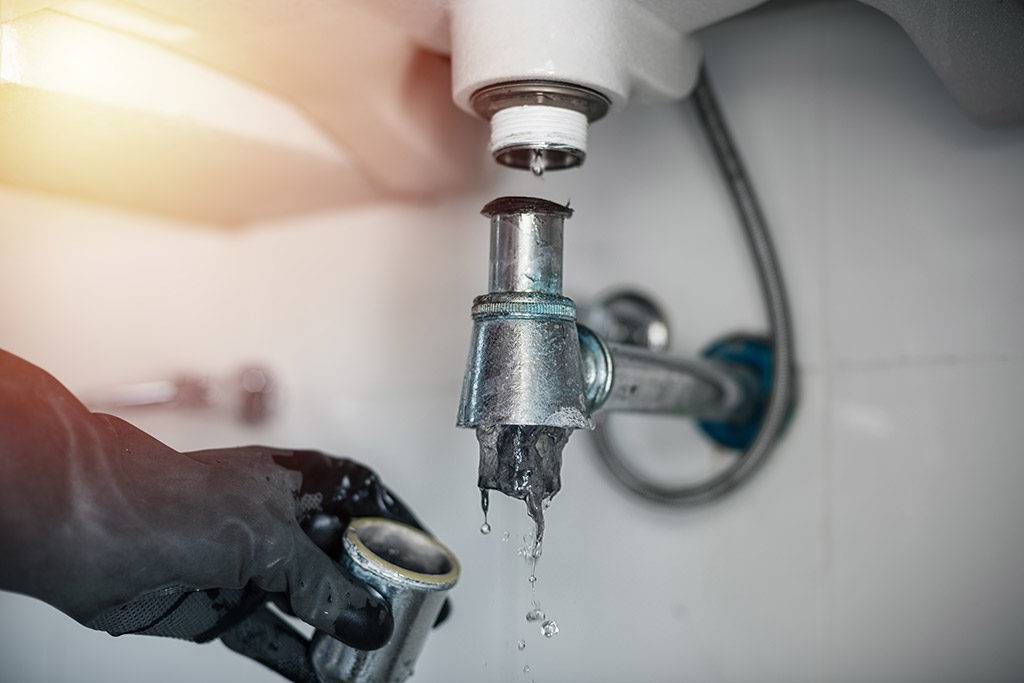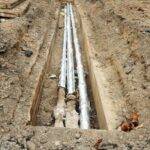Several statistical studies indicate that the toilet emits around thirty percent of an average Canadian’s daily water usage into the sewage system. Consider the fact that the daily water consumption of the average Canadian is 329 liters. Thirty percent of people who use the bathroom demonstrate considerable waste. Keeping these numbers in mind, let’s imagine there’s a clog in the plumbing system; in that case, you can anticipate the following events:
There is a risk that the sewage pipe in your home will become clogged, necessitating laborious and pricey repairs. In addition, you may have to pay the costs associated with replacing the sewer line; plus, you risk poisoning your home with poisonous sludge due to the eventual backup in all your pipes.
A clogged sewage line is a considerable nuisance since it disrupts the plumbing throughout your home, which can lead to significant damage over time. The good news is that you may help prevent clogged drains in your home by taking specific preventative measures. This article focuses on keeping your plumbing system free of clogged drains and pipes.
-
Do Not Hesitate Until Your Main Line Blocks
If your drain is giving you trouble, you might want to hire a drain cleaning service to check it out. This option may seem viable, but you may be missing the real problem. Sometimes you will need the help of a sewer drain repair company. A professional plumber will use closed-circuit television (CCTV) to find the source of the problem and come up with a good solution.
-
Proper Disposal of Leftover Cooking Oil and Grease
Some property owners are under the impression that it is not a significant problem to dispose of old cooking oil in the sink. This way of thinking arises from the idea that cooking oil is not a solid substance; nonetheless, cooking oil can indeed attach to the interior of pipes. The oil will remain on the surface, and as a result, it will continue to collect over time as it entangles the tiny, solid food particles that make their way into the sink. The result of this is a clogged drain. Put the used cooking grease in a jar or can to get rid of it so that you don’t have to worry about it anymore. After filling your container, you can throw it away in the trash.
-
Use Plenty of Cold Water to Run the Garbage Disposal
Even though it isn’t advisable, some people wash their used plates and silverware in the kitchen sink. For this reason, garbage disposals are beneath kitchen sinks.
You’ll find a garbage disposal unit under the kitchen sink which shreds your food scraps. Because of this device, waste will flow easily through the drainage system.
You can take additional action whenever you use this device by pouring cold water as the garbage disposal is still operating. The water will help flush the scraps down the drain.
Additionally, grease can enter the waste disposal unit, harming the functioning of your device. Therefore, before using this apparatus, empty the ice into the sink. The ice’s job is to keep the device cool and to break up any oil that may be present.
-
Avoid Damping Hair Down the Sink or Shower Drain
When hair and soap come together in a drain, they create a blockage that can be challenging to remove. Because of this, you will need the assistance of an affordable plumber in Toronto. In most cases, the plumber will use a drain snake to cut through the buildup.
To prevent clogs in the drains in your home, consider the following preventative measures: Keep the drain system clean and clear of hair as much as possible. If you’re not using the bathtub for a while, put a stopper cork in the drain, and ensure the sink drain cover is tight. If you have long hair, you might want to consider wearing it up while you shower so it doesn’t get caught in the drainpipe or other shower fixtures.
-
Avoid Using Chemicals to Clean Your Drain
Even while drain cleaners are quite effective at removing clogs and debris, their use puts the environment through significant harm. If it is your first time using a chemical drain cleaner, there is little risk that you may damage your pipes. However, these compounds’ continued and aggressive application might create holes in the steel, leading to leakage and obstruction by the covering dirt.
Conclusion
As long as you adhere to the five methods outlined above, water should continue to flow smoothly down your drains, and you should not have to contact a plumber for assistance clearing an emergency clog. However, you can always contact a professional plumber in Toronto for routine checkups whenever necessary.


